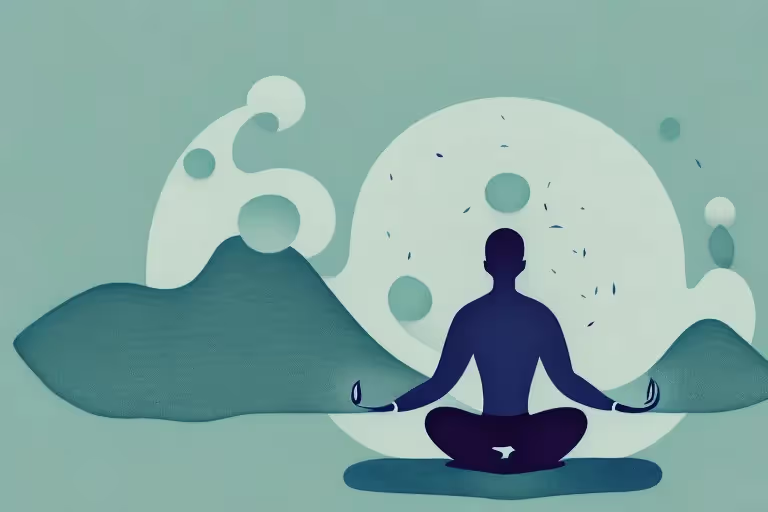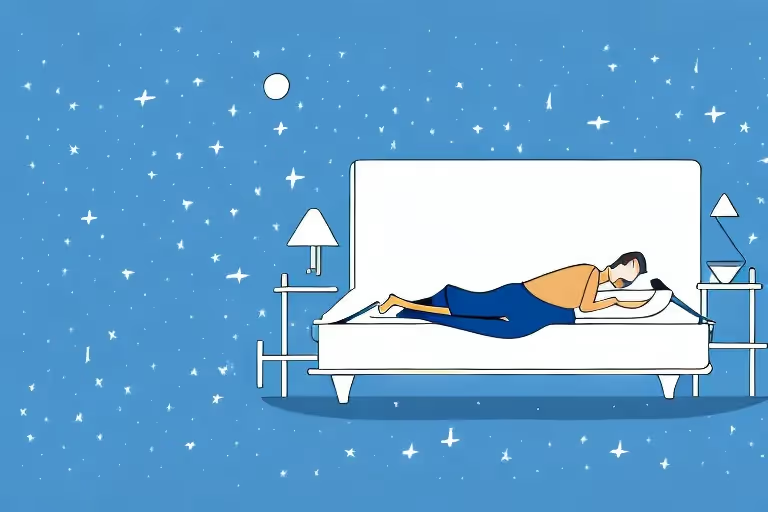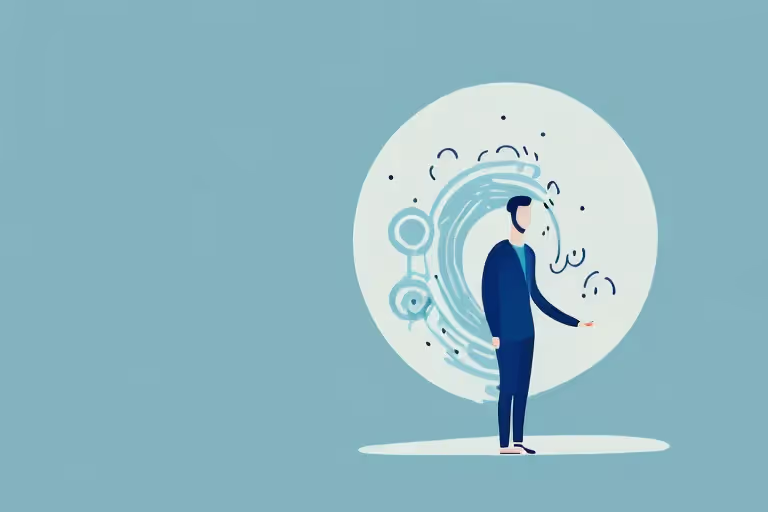Guilt and fear can wreak havoc on our lives, weighing us down and holding us back from reaching our full potential. These negative emotions can be overwhelming, leading to feelings of shame, self-doubt, and anxiety. The good news is that with a little understanding and self-compassion, we can overcome these emotions and take back control of our lives. In this article, we will explore the origins of guilt and fear, identify personal triggers, and learn strategies for freeing yourself from their grasp.
Understanding Guilt and Fear
Guilt and fear are complex emotions that have both positive and negative impacts on our lives. They are natural responses that have evolved over time as part of our survival instincts. However, when these emotions become excessive, they can have a negative impact on our mental and physical well-being.
The Origins of Guilt and Fear
Guilt often stems from a sense of responsibility for causing harm or pain to others. It can also be a result of comparison to others, feeling inadequate, or internalizing the expectations of others. For example, a person may experience guilt for not living up to the expectations of their parents or society. This can lead to feelings of shame, self-doubt, and low self-esteem.
Fear, on the other hand, can arise from a variety of sources, including past experiences, negative self-talk, and external stressors. For example, a person who has experienced a traumatic event may develop a fear of similar situations. This fear can become so overwhelming that it interferes with their daily life.
How Guilt and Fear Affect Your Life
The impact of guilt and fear can vary from person to person, but often leads to a cycle of negative thoughts and behaviors. These emotions can hold us back from taking risks, trying new things, and pursuing our goals. For example, a person who is afraid of failure may avoid taking on new challenges, which can limit their personal and professional growth. Similarly, a person who is consumed by guilt may struggle to forgive themselves and move on from past mistakes.
These emotions can also impact our relationships, leading to feelings of isolation and disconnection. For example, a person who is consumed by guilt may withdraw from social situations, while a person who is afraid of rejection may avoid forming close relationships.
The Connection Between Guilt and Fear
While guilt and fear may seem separate, they are often intertwined. Guilt can create fear of rejection or failure, and fear can lead to feelings of guilt for not living up to expectations. Understanding the connection between these two emotions can help us better address and manage them.
Overall, it is important to recognize the role that guilt and fear play in our lives. While they can be helpful in certain situations, they can also become overwhelming and interfere with our ability to live a fulfilling and meaningful life. By understanding the origins of these emotions and their impact on our lives, we can learn to manage them in a healthy and productive way.
Identifying Your Personal Guilt and Fear Triggers
Guilt and fear are two of the most powerful and pervasive emotions that we experience as human beings. They can be triggered by a variety of different factors, ranging from external events to internal thoughts and beliefs. In order to effectively manage these emotions, it is important to understand the patterns that trigger them, as well as the role that past experiences can play in shaping our responses.
Recognizing Your Guilt Patterns
Guilt can be a difficult emotion to navigate, as it is often accompanied by feelings of shame and self-doubt. One of the first steps in addressing guilt is recognizing the patterns that trigger it. This may include identifying situations or interactions that leave you feeling guilty, and reflecting on the internal narratives that contribute to these emotions. For example, you may feel guilty for taking time for yourself because you believe that you should always be productive and selfless. Once you have a better understanding of these patterns, you can begin to challenge harmful thoughts and beliefs, and develop a more compassionate and realistic perspective.
It is also important to recognize that guilt can be a healthy emotion in certain situations. For example, if you have hurt someone else or violated your own values, guilt can motivate you to make amends and take responsibility for your actions. However, when guilt becomes chronic or excessive, it can be harmful to your mental health and well-being.
Pinpointing Your Fears
Fear can be more elusive and difficult to pinpoint than guilt, as it often manifests as a general sense of unease or anxiety. However, by taking the time to reflect on your experiences and internal dialogues, you can gain a better understanding of what is causing these emotions. It may be helpful to talk with trusted friends or family members, or even a mental health professional to identify your fears and discuss ways to cope with them.
Some common fears include fear of failure, fear of rejection, fear of the unknown, and fear of loss. These fears can be deeply ingrained and may stem from past experiences or cultural conditioning. However, by acknowledging and confronting these fears, you can develop greater resilience and confidence in yourself.
The Role of Past Experiences in Shaping Guilt and Fear
It is important to recognize the impact that past experiences can have on current feelings of guilt and fear. Traumatic experiences or negative upbringing can leave lasting impressions on our psyche, resulting in harmful beliefs and behaviors. For example, if you grew up in an environment where mistakes were punished harshly, you may be more prone to feelings of guilt and self-blame as an adult.
Taking the time to process and heal from these past experiences can be a powerful step towards freeing yourself from guilt and fear. This may involve seeking therapy or counseling, practicing self-care and self-compassion, or engaging in activities that promote healing and growth.
Overall, identifying your personal guilt and fear triggers is an important step towards developing greater emotional awareness and resilience. By recognizing the patterns that contribute to these emotions, you can begin to challenge harmful beliefs and behaviors, and cultivate a more positive and fulfilling life.
Strategies for Overcoming Guilt and Fear
Challenging Negative Thoughts and Beliefs
Once you have identified the triggers for your guilt and fear, the next step is to challenge the negative thoughts and beliefs that contribute to these emotions. This may involve questioning the validity of self-critical beliefs, reframing negative experiences, and practicing self-compassion. By focusing on positive self-talk, you can gradually shift your perspective and develop a more positive outlook on life.
Developing Healthy Coping Mechanisms
Another effective strategy for overcoming guilt and fear is to develop healthy coping mechanisms. This may involve practicing mindfulness meditation, engaging in exercise or other relaxing activities, or simply taking a break from stressors to recharge. By focusing on self-care and healthy habits, you can reduce feelings of guilt and fear, and feel more in control of your emotions.
Seeking Support from Friends, Family, and Professionals
Finally, seeking support from trusted friends, family members, or mental health professionals can be a powerful strategy for addressing and managing guilt and fear. By talking through these emotions with others, you can gain valuable insights and perspectives, and develop a plan for moving forward. With the right support, you can learn to overcome these negative emotions and live a more fulfilling life free from the constraints of guilt and fear.
Practicing Self-Compassion and Forgiveness
Cultivating Self-Acceptance
A fundamental aspect of overcoming guilt and fear is cultivating self-acceptance. This means recognizing your strengths and weaknesses, and learning to appreciate yourself for who you are. By focusing on self-compassion and kindness, you can develop a more positive and loving relationship with yourself.
Learning to Forgive Yourself and Others
Forgiveness is another critical aspect of self-liberation from guilt and fear. This means letting go of grudges and resentments towards yourself and others, and recognizing that everyone makes mistakes. Forgiveness can be a difficult process, but it is key to releasing yourself from the negative emotions that can hold you back.
Embracing Your Imperfections
Finally, it is important to embrace your imperfections and accept that they are a natural part of being human. Rather than striving for perfection, focus on progress and growth. By embracing your unique qualities and acknowledging your flaws, you can learn to appreciate yourself for who you truly are.
Closing Thoughts
Guilt and fear can be powerful emotions that hold us back from living our best lives. However, with understanding and self-compassion, we can learn to overcome these negative emotions and live a more fulfilling and meaningful life. By identifying personal triggers, adopting healthy coping mechanisms, and cultivating self-acceptance and forgiveness, we can liberate ourselves from guilt and fear and embrace the beauty of our imperfections.



.webp)






.avif)

%20(1).avif)


.avif)
.avif)
.webp)


.avif)


















































































































.avif)

















.svg)









